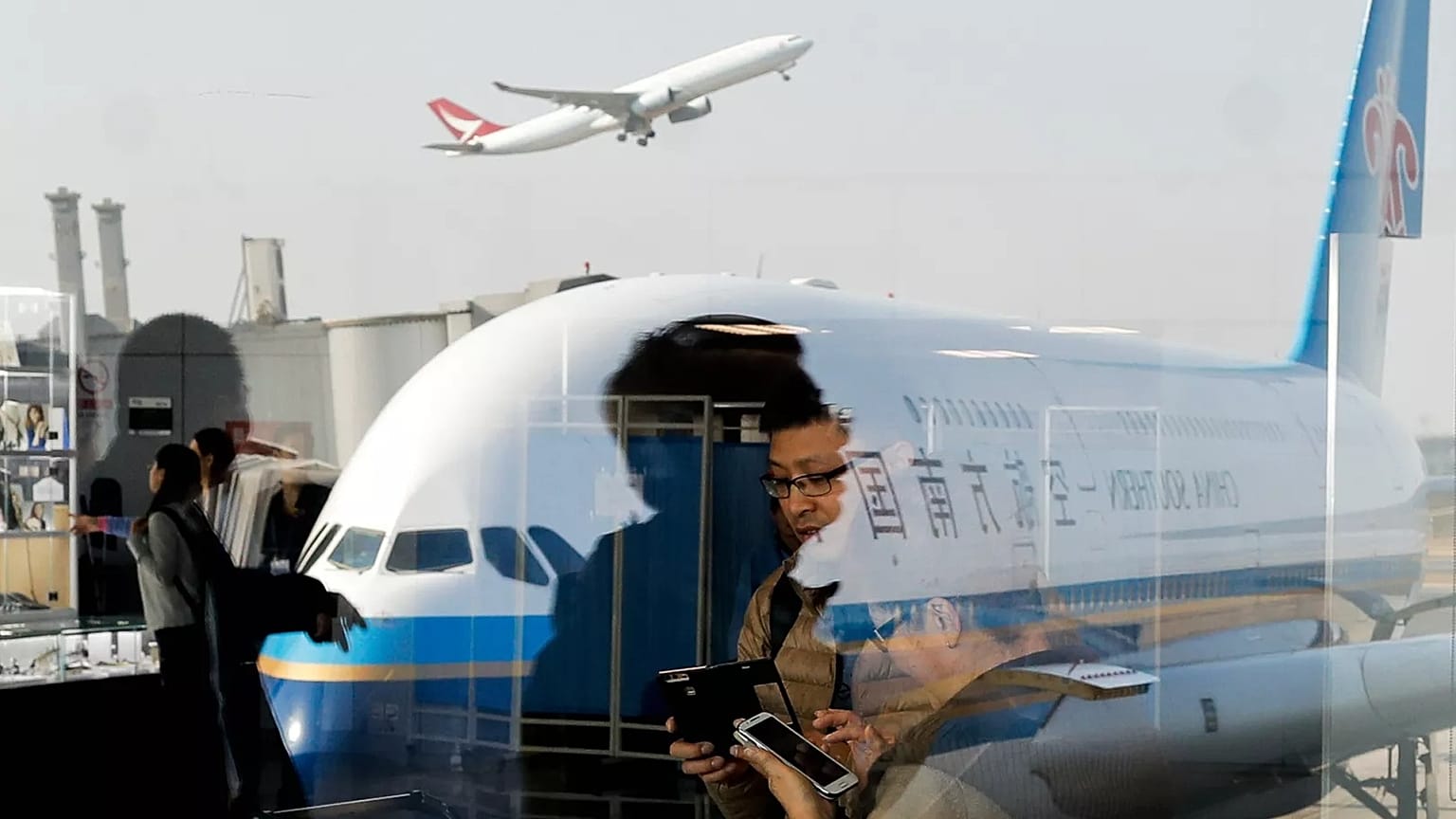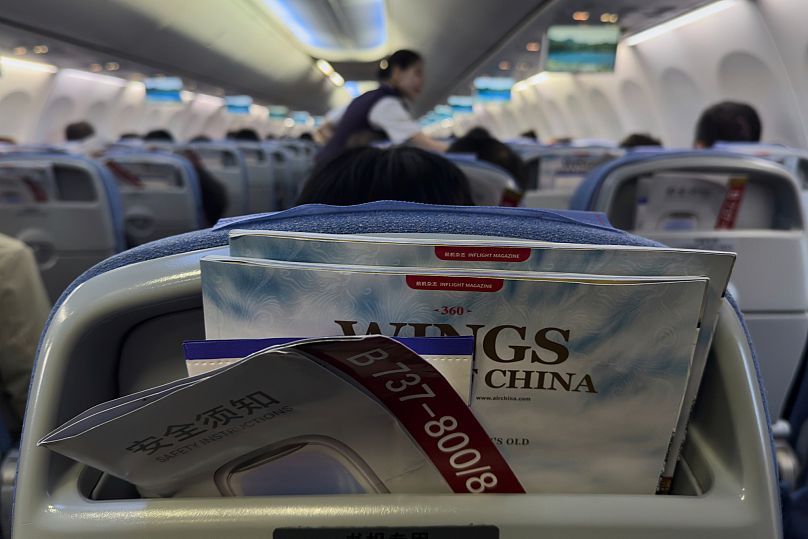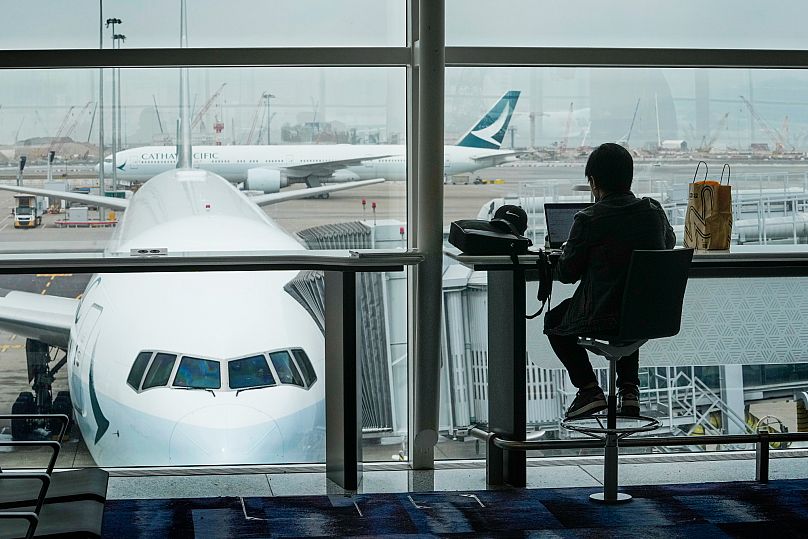The Kremlin shuts its airspace to US airlines in 2022 in response to Western sanctions over its full-scale invasion of Ukraine.
China's largest state-owned airlines have condemned a US plan to stop them flying over Russia on journeys to or from America.
 ADVERTISEMENT
ADVERTISEMENT
 ADVERTISEMENT
ADVERTISEMENT
The US Department of Transportation said the current shorter routes used by Chinese planes give them an unfair advantage over their American competitors.
"Being able to use the most efficient route provides a competitive advantage because it usually results in the shortest flight time duration, thereby offering a more appealing option to travellers," it said last week.
US airlines — and many European ones too — have been forced to fly around Russia since 2022, when the Kremlin prevented them from using its airspace in retaliation for Western sanctions over its full-scale invasion of Ukraine.
Air China, China Eastern and China Southern and three other Chinese carriers are filing complaints in response to the US proposed Russian airspace ban.
China Eastern said in its filing this week to the US Department of Transport that the move would "harm the public interest" and "inconvenience travellers" from both China and the US.
The burden on travellers would be felt by longer flights and higher fares, driven up by increased fuel costs, it said.
China Southern also warned that a Russian airspace ban would adversely affect thousands of travellers, while Air China estimated that at least 4,400 passengers would be affected if the ban is imposed during the Thanksgiving and Christmas season.
Last week, China's foreign ministry spokesperson Guo Jiakun also hit back at the proposed move, saying it would be "punishing" for people around the world.
David Yu, an aviation industry expert at New York University Shanghai, said that US carriers' inability to fly over Russian airspace has increased flight paths for some US-China routes by roughly two to three hours.
"The US-China route historically has been a money-maker for airlines on both sides," Yu said. "From the Chinese carriers’ perspective, if you can go through Russia, your costs go down."
Despite these lower costs, Chinese carriers have struggled with losses, especially since the Covid-19 pandemic.
The Department of Transportation said it would consider public comments before finalising the plan.
European airlines including Air France-KLM have also complained.
In its own filing to the Department of Transportation, United Airlines said Hong Kong's flagship carrier Cathay Pacific, which is not included in the list of Chinese airlines, should also be subject to the ban.

















